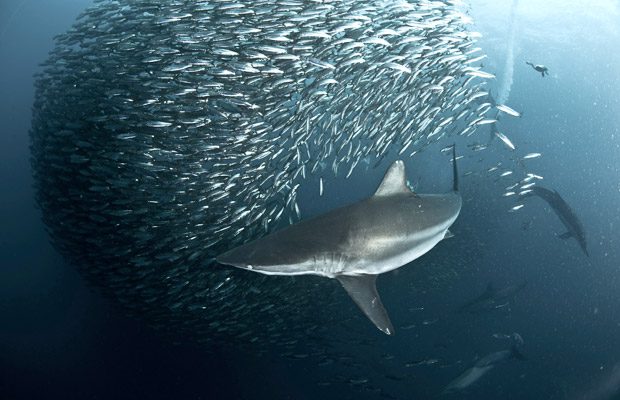Emily Yoffe is, like Dave Ramsey, someone who provides advice for a living. Yoffe writes the “Dear Prudence” column for Slate where, like many an advice columnist before, she generally offers common-sense prescriptions to correspondents who, for the most part, already know what they need to hear but are writing to ask someone else to confirm it by nudging them in that direction.
And also like Dave Ramsey, Yoffe sometimes steps in it when she seems to reduce all the problems of the world to people who refuse to listen to her great wisdom. This problem is exacerbated by another Ramsey-ish trait — Yoffe’s thin-skinned defensiveness when she gets called out on this simplistic, reality-obscuring form of victim-blaming.
Here, I’m afraid we’re going to need a trigger warning, because discussing Yoffe’s variation of Ramsey’s bad advice will involve discussing rape, rape denialism, and the delusion that the problem of rape is about something other than the violent, predatory men who commit that crime.
This post by Alexandra Brodsky, addressed directly to Yoffe back in January, summarizes the problem — “Dear Prudence: How should I respond to your rape denialism?”
This is the fourth letter in 12 months you’ve answered about a woman deeply affected by unremembered intercourse, and the third time you’ve insisted that such acts constitute an irresponsible drinker’s comeuppance or a fun, harmless night … but almost never rape.
- Last January, you told another reader whose friend was considering pressing chargesagainst a man she believes raped her while she was drunk that “trying to ruin someone else’s life is a poor way to address one’s alcohol and self-control problems.”
- Six months later, in the one column last year in which you accepted that intercourse with a drunk woman might be rape, you managed to spend a good chunk of your response talking about how women set themselves up for assault by drinking; in a follow-up, you defended your victim-blaming as pragmatism. …
Doubting a given account doesn’t automatically make one a rape denialist, but a consistent track record of dismissing alleged assaults because the victims were drunk does. It’s not just these three women who are harmed by your facile dismissal of their experiences and subsequent masquerade of misogynistic popular myths about rape as expert wisdom. You betray all survivors who are stung by your harsh skepticism and all participants in our shared sexual culture whose partners’ expectations are, directly or indirectly, shaped by your downplaying of the importance of consent.
To be honest, though, rape denialism and victim-blaming in the mainstream media aren’t that surprising. What actually shocked me the most about your letters, Prudence, was your lack of empathy.
This criticism only led Yoffe to double down on her insistence that victims are to blame for not taking her advice and not making the best choices. While most of the country was recoiling in horror from the predatory behavior of teenage boys in Steubenville and Maryville, Yoffe saw those crimes as an opportunity to reinforce her message that predators are not to blame for taking advantage of people who have put themselves in a vulnerable position. “Sexual assault and drinking: Teach women the connection,” was the headline of Yoffe’s manifesto — this despite the fact that her examples from Steubenville and Maryville involved young girls — children — not grown women.
Yoffe, like Dave Ramsey, seems to think of herself as a tough-minded provider of tough love. “A misplaced fear of blaming the victim has made it somehow unacceptable to warn inexperienced young women that when they get wasted, they are putting themselves in potential peril,” she writes, wanting readers to know she’s not “afraid” of blaming the victim.

” The rise of female binge drinking has made campuses a prey-rich environment,” Yoffe says. She doesn’t exactly like the fact that a “prey-rich environment” can only exist in a predator-rich environment, but she sees that as a given — something that just is, about which nothing can or should be done.
“Let’s be totally clear: Perpetrators are the ones responsible for committing their crimes, and they should be brought to justice,” she writes. But the next word is but. “But we are failing to let women know that when they render themselves defenseless, terrible things can be done to them.”
Some of what she goes on to say is unassailably sensible advice — not just for women, but for everyone. But like Ramsey, Yoffe makes this part of her advice difficult to take by weirdly presenting the most banal common sense as though it were her own unique insight and not just a no-duh repackaging of the obvious. Ramsey advises people not to buy things they can’t afford and not to borrow money they can’t pay back. Gee, thanks Dave. Nobody ever thought of that before.
The condescension that accompanies the common-sense aspects of their advice could be shrugged off if Yoffe and Ramsey didn’t take the next ugly step — the sweeping implication that it is the “prey” who are primarily responsible for being preyed upon in their “prey-rich environment.” Here’s how Ramsey put it, explicitly: “The only variable in the discussion you can personally control is YOU. … You can make better choices and have better results.”
And for both Ramsey and Yoffe, the implication is clear: If you’ve had bad “results,” then you must have made bad choices.
All of which makes people like Ramsey and Yoffe invaluable for predators.
Sure, there’s a slight downside in that their “advice” might make some percentage of the potential population of prey marginally more cautious or less vulnerable. But that’s nothing compared to the service they provide by legitimating predation itself. They practically institutionalize it, placing it’s existence beyond question as an eternal, unchanging fact of life that all tough-minded, tough-loving, tough people must be tough enough to accept as a given. The logic of their advice says that predators have a right to be predators. Whether it’s rape or usury, those predators are legitimated and almost praised by Ramsey and Yoffe for illustrating the “comeuppance” due to those who make “bad choices” and who irresponsibly disregard the advice of the professional advice-givers.
I would point out that legitimating such behavior is evil and wrong, but unlike Ramsey and Yoffe, I don’t feel the need to puff myself up by telling you what you already know and pretending it’s my own unique insight.
Ugh. After getting down into that muck I need a refresher, so here’s Siouxsie Sue. It’s beautiful, and so are you. Look around:
















